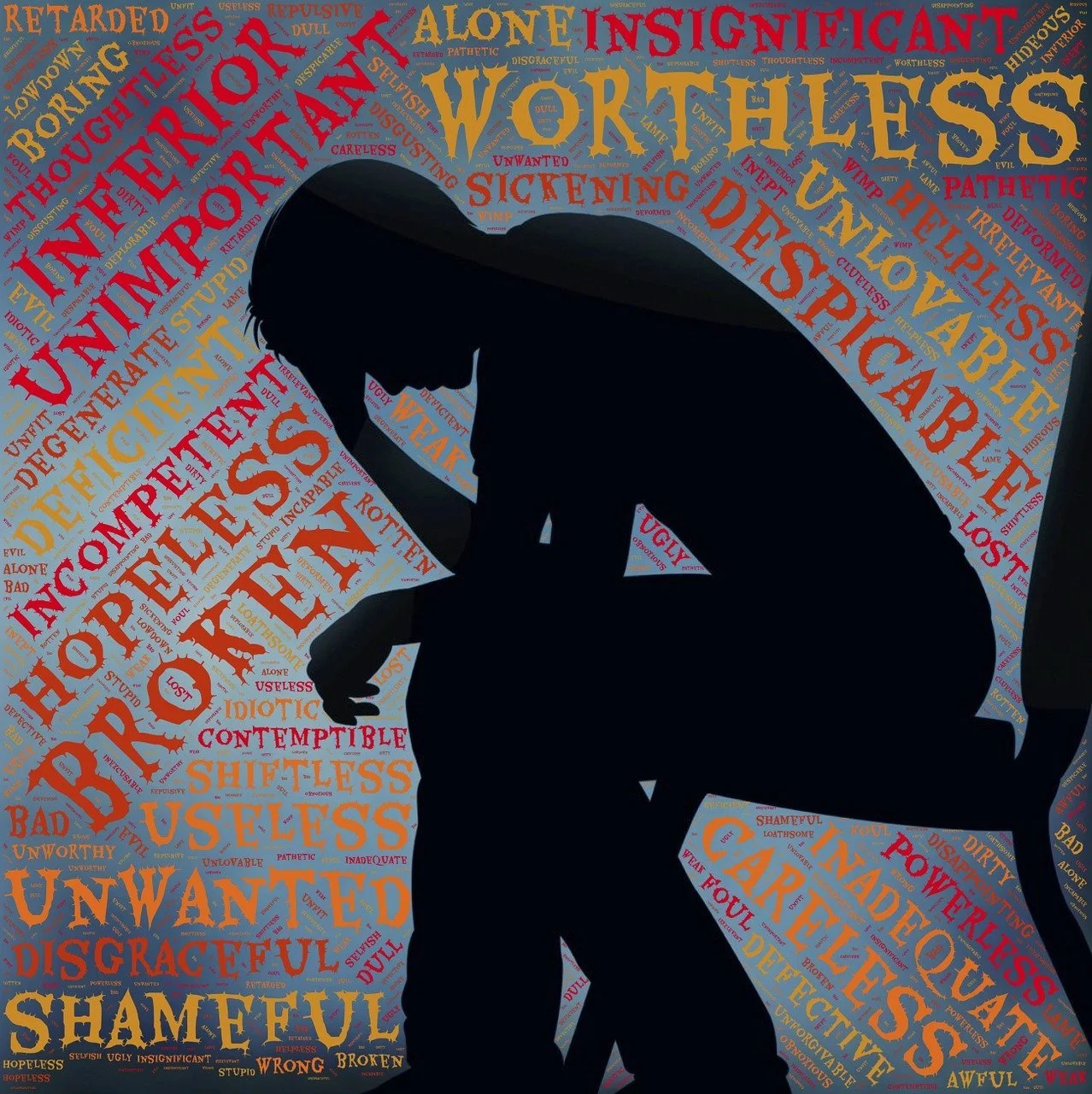Taming the Inner Critic and Making it Part of Your Dream Team
Is your inner critic getting the better of you? Berating you and tearing you down on a daily basis? Do you believe what it says and adjust your bahaviour accordingly? It's time to take back control and start living your life on your terms.
UNDERSTANDING THE INNER CRITIC
As human beings, we are multi-dimensional beings and very complex. Our psychology goes deep into the shadows of our being. The inner critic is just one part of our psychological make-up or what I call our apparatus. Getting to know our inner critic and learning how to use it to our advantage improves mental well-being and helps us flourish in healthier ways.
DEFINITION AND PURPOSE OF THE CRITICAL INNER VOICE
The inner critic is a critical inner voice that judges and criticizes us for our thoughts, feelings, and actions. We've all got one. It's part of our survival mechanism. The inner critic serves as a protector, keeping us safe from perceived dangers or risks.
The problem is that some of us have inner critics who are on steroids. They are literally running the show in our heads, and we don't even realise it. Before we know it, our inner critic has carved well-trodden neural pathways and become the dominant thought pattern. This style of thought can develop into habitual negative thoughts that lead to a whole host of negative mental health problems.
THE NEGATIVE IMPACT OF SELF-CRITICISM
While our inner voice sets out to protect us, if it's out of control, it can take us down the fast route to a mental health crisis.
The Effects of Harsh Inner Critics on Mental Health
Left to its own devices, an inner inner critic on the rampage can lead to:
Low self-esteem, low self-worth and low self-confidence
A lack of motivation and depressive thoughts.
Feeling ashamed, guilty, and anxious.
ROOTS OF THE INNER CRITIC
The inner critic is part of our survival mode. It's designed to keep us safe. Without it, we would be in trouble. So, it's not about getting rid of the inner voice of negativity altogether but about taming it and taking back control.
Childhood Experiences
Our inner critic grows as we grow. It develops from childhood and continues to evolve in adult life. As children, we're vulnerable and also dependent on others, so our inner critic is like a big brother who holds a lot of responsibility for keeping us safe. Sadly, that means that sometimes it develops deeply ingrained criticism habits.
Particularly if, as children, we feel that we are not safe. Our inner critic will work harder than ever to keep us safe. It will even do the work of abusive or neglectful caregivers. It is better to self-police than have an abusive person police us.
But even if we grew up in a safe environment with loving parents, our inner critic still had a role to play. As children, we constantly do things that are not socially acceptable, and it's our parents' job to socialise us and teach us what is acceptable and what is not. We somehow go from picking our noses and wiping snot on our sleeves to orderly adults, and our inner critic is there to ensure that happens so that we can flourish in life and society.
But in today's highly competitive world, that's not enough. Top school grades and winning sports championships come with the territory of childhood, and again, our inner critic is there to make sure we live up to the expectations put upon us, holding us to ever-higher standards so that we can get ahead in life.
THE INNER CRITIC IN ADULT LIFE
In essence, it sounds great—holding me to high standards and helping me get ahead. Who wouldn't want that? But the truth is that an overactive inner critic can inhibit us more than it supports us. I'll give you an example from my own life.
My inner critic demands perfection from me. I've always been a perfectionist, demanding perfection from myself and others. In some ways, this has served me well. During my studies, I attained A's for every module: six undergraduate psychology modules and six postgraduate transpersonal psychology modules. Impressive! And I'm fairly confident at writing essays and getting high grades. For some people, that's a dream. So where's the problem.
That same inner critic would tower over me during every webinar, keeping me silent instead of letting me answer questions, join the debates and share my views. It has me trembling so badly before I speak publicly that I'm still trembling when I sit down after my speech. It has held me back in so many ways. It doesn't want me to look stupid and if I'm not 200% sure that I'm 100% right I keep my mouth shut. And I hide away. I've missed opportunities, don't get the respect I deserve and so on.
Over the years, I've come to get to know my inner critic very well. I call her The Headmistress. These days, we're good friends. I've got her off the steroids and on a leash! And she serves me well. When I need high standards, I know I can count on her. But let's face it, perfection doesn't even exist, so I'm no longer chasing that. And when she pipes up, I'm in charge. She doesn't get to dictate whether I go on stage or not. Or whether I speak my voice or not. And I think she's good with that too.
But where would I have ended up if I had not taken back my power and put her in her place?
THE PARADOX OF HIGH PERFORMERS
High-achieving individuals often have a heightened level of self-criticism, which can drive them to achieve excellence. However, this approach can also lead to anxiety, fear of failure, and unhealthy comparisons with others. Self-criticism can backfire when individuals are unable to meet their expectations, leading to feelings of inadequacy and worthlessness.
Instead of keeping us safe, our inner critic has become our worst enemy, and there's no escaping from a critical voice in your own head, especially when you're not even aware of it.
THE INNER CRITIC AND BRAIN PLASTICITY
Fortunately, our brains are malleable, so we can take control and reclaim our power. This is called brain plasticity. It means we can develop new neural pathways. At the same time, the old neural pathways start to become redundant. It's time to get out from being under your bullying inner voice critic, make some new neural pathways and develop self-esteem, confidence and feel more joy.
STRATEGIES FOR OVERCOMING THE INNER CRITIC
Practicing Self-Compassion and Mindfulness
The first step to overcoming an inner critic on steroids is to notice it, and that comes through mindfulness.
Identify the inner voice that criticizes and judges you, and acknowledge its presence.
Practice self-compassion by treating yourself with kindness, understanding, and acceptance, just as you would a close friend.
Be the kindly witness who observes with curiosity instead of judgment.
Reframing Negative Thoughts
Reframing is a cognitive practice for improving mental well-being.
Notice the negative self-talk and challenge it for evidence of truth.
Develop a growth mindset by focusing on learning and growth rather than perfection to reduce self-criticism and increase self-compassion.
Turn up alternative voices: Imagine a friend or family member answering on your behalf or reframing negative self-talk as a well-meaning coach or protector.
Replace self-criticism with more balanced and realistic thoughts.
Embracing the Practice and Making Self-Acceptance a Habit
Commit to overthrowing your critical inner voice.
Become your own best friend and advocate.
Protect yourself from your tyrant inner voice.
Learning to be compassionate takes daily discipline, just like physical fitness.
Self-compassion is a lifelong journey that requires commitment and practice.
HOW BAD IS YOUR INNER CRITIC?
I'm guessing if you've read this far, your inner critic is on steroids. And you're looking for ways to take back your power and control. That's a decision you can make because, in reality, your inner critic is there to serve you, not the other way around.
All of the strategies above are powerful and will help. I'll be honest. Changing the way our brains are wired can be challenging, so you have to be committed. Daily practices will help but sometimes our critical voice will use that as a launch pad, ready to pounce on you when you miss a day.
The best way to overcome your inner critic's tiresome ways is to face them head-on, like I did. I literally had it out with The Headmistress. I had to before she took away all my dreams. It was messy, I was angry, it was emotional, but by confronting her, I could befriend her. Now, we're the dream team.
GETTING HELP FROM A PROFESSIONAL
Depending on where you're at with your inner critic, you might want to get professional help. I certainly recommend this route if it's debilitating you, causing you to play small or having a negative impact on your mental health.
If you think you might be suffering from depression or chronic anxiety, it's probably best to see a mental health professional such as a clinical psychologist or psychiatrist.
Other options are psychotherapy or coaching. You might choose this route if you feel like you're playing small, reluctant to step outside your comfort zone, or just fed up with being bullied in your own head and want to take back control.
YOUR INNER CRITIC IS YOUR BIGGEST INFLUENCE
Let's be honest. You'd never put up with your inner critic if it were your best friend, family member, or lover. That's just not an acceptable way to talk to anyone, yet that's what we listen to all day long. It's our biggest influence. You decide. Is that the influence you want? Or do you choose something more positive, loving, kind, and gentle?
INSIGHT HIGHLIGHT
Our inner critic develops in childhood and supports and protects us. Where is that inner critic when we grow up? It's right there with us, still taking care of us. But now, its program is outdated, and its protection is more like that of an overbearing bully.
Thanks to neural plasticity, we can change that using the strategies outlined above. It's time to take back your power, befriend your inner critic, and become the unstoppable team you need to thrive in this world.
Explore More About Personal Development
Want to expand your knowledge and understanding? Check out these articles:






